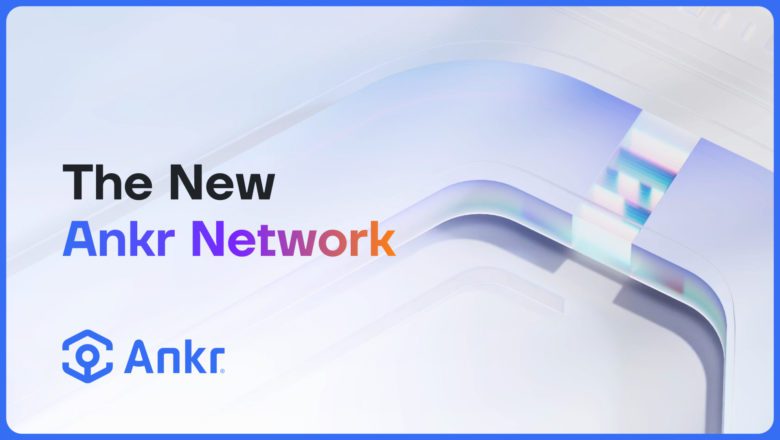Ankr Unveils Its Network 2.0 to Decentralize Web3’s Foundational Layer
The upgrade brings a full suite of decentralized products and services that serve as the critical infrastructure behind Web3 growth.

Share this article
Ankr, one of the world’s leading Web3 infrastructure providers, is delighted to introduce Ankr Network 2.0, described in the new whitepaper as a “Decentralized marketplace for Web3 infrastructure.” The upgrade brings a full suite of decentralized products and services that serve as the critical infrastructure behind Web3 growth.
Ankr 2.0 Brings Decentralized Web Services
There have long been concerns that Web3 is not as decentralized as its boosters claim as the majority of its server (node) infrastructure for underlying blockchains is hosted by centralized companies and data centers. Ankr 2.0 solves this crucial problem with new decentralized web services – a protocol that allows independent node operators to connect developers and dApps to blockchains and earn rewards while they do it.
Greg Gopman, Chief Marketing Officer at Ankr, said:
“Ankr 2.0 is the missing link for Web3 to become decentralized once and for all. Allowing blockchains to work with multiple infrastructure providers on a single network has always been the dream, both for speed, reliability, and decentralization. Now with the Ankr Network, that’s all possible. It’s a major move forward for the industry to keep innovating towards an infrastructure that can handle mass adoption in the years to come.”
The new network has been over a year in making as Ankr transitioned its centralized infrastructure business to a decentralized protocol, creating the first-of-its-kind node infrastructure protocol for the industry to collaborate on. The fully decentralized Ankr Network brings the following upgrades for the benefit of all stakeholders:
Independent node providers can serve traffic and earn rewards on the Ankr Network. Organizations that already run full nodes for their own projects can also connect to the network to earn rewards when their project isn’t using them. Independent nodes join the existing global network to serve all blockchain request methods, including the Advanced APIs that streamline and simplify data querying.
As independent node providers power the network, this means that the developers, dApps, wallets, and all other projects using the service now have a decentralized means of connecting to blockchains. All of these parties pay-as-they-go when making requests to blockchains (around 7.2 billion per day total), and this income is split between node providers and the community of stakers that helps secure the full nodes.
On the new decentralized network, the ANKR token plays a central role in all operations:
- Developers pay for access to on-chain data (RPC requests) in ANKR
- Independent node providers serve blockchain requests to earn ANKR
- Stakers contribute ANKR to nodes to secure the network and share in the rewards
Anyone can stake to full nodes on Ankr Network and earn rewards for all RPC traffic served. By creating a decentralized infrastructure marketplace and economy, the network will scale to accommodate the ever-increasing amount of Web3 usage and allow more stakeholders to benefit from its growth.
Ankr Network will begin to transition operations to a new DAO framework to promote consensus-based decision making. The DAO will initially democratize the decision-making process in three core areas:
- Deciding where to allocate funds from the Ankr Treasury to incentivize protocol growth and rewards.
- Determining pricing and revenue splits for various systems touching the protocol like Node Providers and Staking.
- Choosing which blockchains to onboard next to Ankr’s industry-leading RPC services.
Ankr has built out the largest global node network in the industry, creating the foundation for the future of Web3. It currently serves around 250 billion blockchain requests a month across 50 different chains and runs RPC services for 17 blockchain partners, making it the largest RPC provider in the industry. Ankr also offers a suite of tools that empower dApp developers to build Web3 apps quickly and easily.
Share this article
